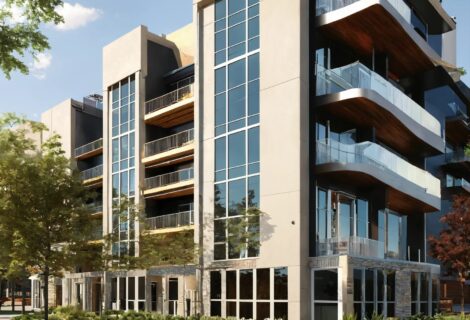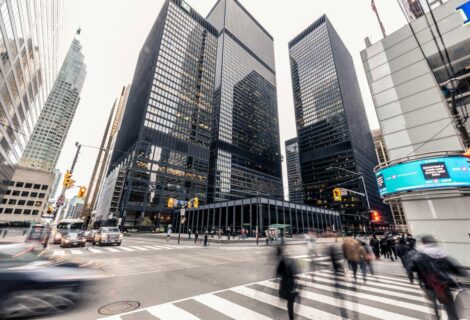Securing funding is a critical step in the success of commercial real estate ventures. With a myriad of lending options and financial considerations, navigating the loan process can be daunting. AMZA Capital emerges as a specialized lender, offering a range of commercial real estate loans tailored to various projects such as fix and flips, rentals, and developments. Understanding the nuances of loan applications, credit requirements, property appraisals, debt service coverage ratios, and exit strategies is essential in unlocking the doors to financing. This article will delve into the 5 key aspects to consider when seeking commercial real estate loans with AMZA Capital.
Key Takeaways
- A well-prepared loan application is the first step to securing funding with AMZA Capital, showcasing the potential of your real estate project.
- Maintaining a strong credit score is crucial as it reflects your creditworthiness and can significantly influence loan terms and interest rates.
- An accurate property appraisal is essential for determining the value of the real estate, which affects the loan amount and the investment’s feasibility.
- Understanding and meeting the Debt Service Coverage Ratio (DSCR) requirements is vital for proving the property’s ability to generate enough income to cover the loan payments.
- Having a clear exit strategy is imperative for lenders like AMZA Capital to assess the risk and ensure the loan can be repaid at the end of its term.
1. Loan Application
The initial step in securing a commercial real estate loan with AMZA Capital is the loan application process. This critical phase requires meticulous attention to detail and comprehensive documentation to ensure a smooth evaluation by the lender.
The application should include:
- Personal and business financial statements
- A detailed business plan
- Evidence of past real estate experience
- Information on the property to be financed
It’s essential to present a well-organized and complete application to increase the chances of approval. AMZA Capital, with its focus on key factors such as property value and creditworthiness, will scrutinize the application to determine the loan’s viability.
The loan application is not just a formality; it’s a strategic document that sets the tone for the entire lending process. A strong application aligns with AMZA Capital’s emphasis on fair market value and other critical lending criteria.
2. Credit Score

A robust credit score is crucial when securing commercial real estate loans. Lenders like AMZA Capital assess credit history to gauge a borrower’s reliability and risk profile. A higher score can lead to more favorable loan terms, including lower interest rates and larger loan amounts.
Credit scores are typically categorized as follows:
- Excellent: 750 and above
- Good: 700 – 749
- Fair: 650 – 699
- Poor: 550 – 649
- Very Poor: less than 550
Maintaining a good credit score is essential, as it reflects your financial health and impacts the terms of your loan.
It’s advisable to review your credit report for any inaccuracies and to understand the factors that can affect your score. Timely payments, low credit utilization, and a history of responsible credit management are key to boosting your score. Partnering with a lender like AMZA Capital, which offers comprehensive financing solutions, can be a strategic move for your investment projects.
3. Property Appraisal

A critical step in securing a commercial real estate loan with AMZA Capital is the property appraisal. This process determines the fair market value of the property you intend to finance. An accurate appraisal not only satisfies the lender’s need for collateral valuation but also ensures that you are making a sound investment.
The appraisal provides a comprehensive analysis of the property, considering factors such as location, condition, and income potential.
Lenders typically require a professional appraisal to mitigate risk and confirm that the loan amount is not exceeding the property’s worth. The appraisal report will include various details, such as:
- Recent sales of comparable properties
- Replacement cost calculations
- Income approach analysis, if the property generates revenue
Remember, a well-supported appraisal can be a powerful tool in negotiating loan terms.
4. Debt Service Coverage Ratio (DSCR)

Understanding the Debt Service Coverage Ratio (DSCR) is crucial when seeking commercial real estate loans. This metric is used by lenders like AMZA Capital to assess a borrower’s ability to generate enough income to cover loan payments. A DSCR of 1.0 means your income is equal to your debt service, but ideally, lenders look for a DSCR greater than 1.0, indicating that the property generates sufficient income to pay off the debt with a margin of safety.
The DSCR is a pivotal financial ratio that reflects the cash flow available to pay current debt obligations. It does not only influence loan approval but also affects the terms and conditions of the loan.
Here’s a simple way to calculate DSCR:
| Net Operating Income (NOI) | | Debt Service |
|---|---|
| $100,000 | $80,000 |
In this example, the DSCR would be 1.25 ($100,000 / $80,000), which is generally considered healthy. Remember, a strong DSCR can lead to more favorable loan terms.
5. Exit Strategy

An exit strategy is a critical component of any commercial real estate loan process. Lenders want to see a clear plan outlining how the borrower intends to pay off the loan at the end of the term. Having a well-defined exit strategy can significantly enhance the likelihood of securing funding.
There are several exit strategies that borrowers can employ, and choosing the right one depends on various factors such as the property type, market conditions, and the borrower’s long-term goals. Some common exit strategies include:
- Selling the property at a profit
- Refinancing the loan with more favorable terms
- Holding the property and continuing to collect rental income
It’s important to present a realistic and achievable exit strategy to the lender. This not only demonstrates your understanding of the market but also your commitment to repaying the loan. Consider the following table as a simplified example of how to present your exit strategy to a lender:
| Strategy | | Expected Outcome | | Timeframe |
|---|---|---|
| Sell Property | Capital Gain | 5 years |
| Refinance | Lower Interest Rate | 7 years |
| Hold and Rent | Steady Income | 10+ years |
A robust exit strategy should align with your financial projections and business plan. It must be flexible enough to adapt to changing market conditions while remaining focused on the ultimate goal of loan repayment.
Remember, your exit strategy is not just a formality; it’s a testament to your foresight and financial acumen. AMZA Capital recognizes the importance of an exit strategy and can provide a FREE QUOTE to help you plan the most suitable approach for your situation.
As you consider the future of your investments, having a solid exit strategy is crucial. At AMZA Capital, we understand the importance of planning ahead and are here to support you every step of the way. Whether you’re looking at Commercial Real Estate Financing, Construction Financing, or any other financial solution, our team is ready to assist you in crafting the perfect exit plan. Don’t leave your financial future to chance; visit our website and explore our comprehensive services to secure your investments. Reach out to us today for a FREE QUOTE and let’s build a successful exit strategy together.
Conclusion
Navigating the complexities of commercial real estate financing can be a daunting task, but with the right approach and understanding of the lending landscape, it becomes much more manageable. AMZA Capital stands out as a specialized lender that caters to a wide range of commercial real estate needs, from fix and flips to large-scale development projects. By leveraging the five keys discussed in this article, prospective borrowers can unlock the funding they need to bring their real estate visions to life. Remember, each project is unique, and partnering with a lender like AMZA Capital can provide the tailored financial solutions that align with your specific goals and requirements.
Frequently Asked Questions
What types of commercial real estate loans does AMZA Capital offer?
AMZA Capital specializes in various types of commercial real estate loans including fix and flips, DSCR loans, rental property financing, rehabs, bridge loans, and loans for commercial real estate development projects.
What do I need to prepare for a loan application with AMZA Capital?
When applying for a loan with AMZA Capital, you should prepare your financial statements, a detailed business plan, property details, and any previous experience in real estate projects to demonstrate your capability to manage the investment.
How does my credit score affect my ability to secure a loan with AMZA Capital?
Your credit score is a critical factor in the loan approval process as it indicates your creditworthiness. A higher credit score can lead to better loan terms, while a lower score may require additional collateral or a higher interest rate.
Why is a property appraisal important for obtaining a commercial real estate loan?
A property appraisal provides an estimate of the property’s value, which is essential for lenders like AMZA Capital to determine the loan amount they can offer. It also ensures that the property is a viable collateral for the loan.
What is Debt Service Coverage Ratio (DSCR) and why is it important?
DSCR is a measurement of a property’s cash flow to pay its debt obligations. It’s important because it helps AMZA Capital assess the risk of lending by determining if the property generates enough income to cover the loan payments.
What kind of exit strategy should I have when applying for a commercial real estate loan?
An exit strategy is your plan for repaying the loan, which could include selling the property, refinancing, or other means of paying off the debt. AMZA Capital will want to see a clear and realistic exit strategy before approving a loan.




